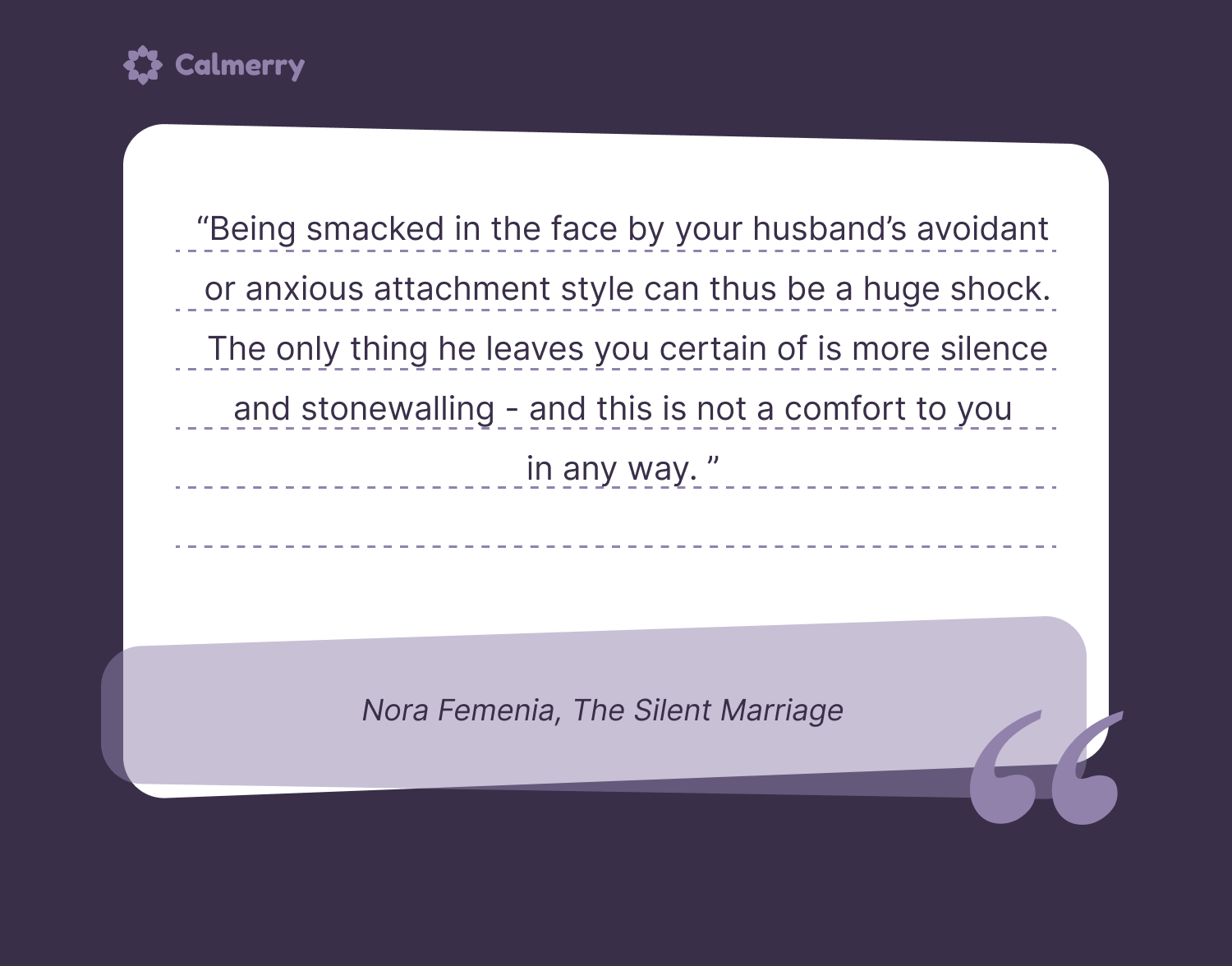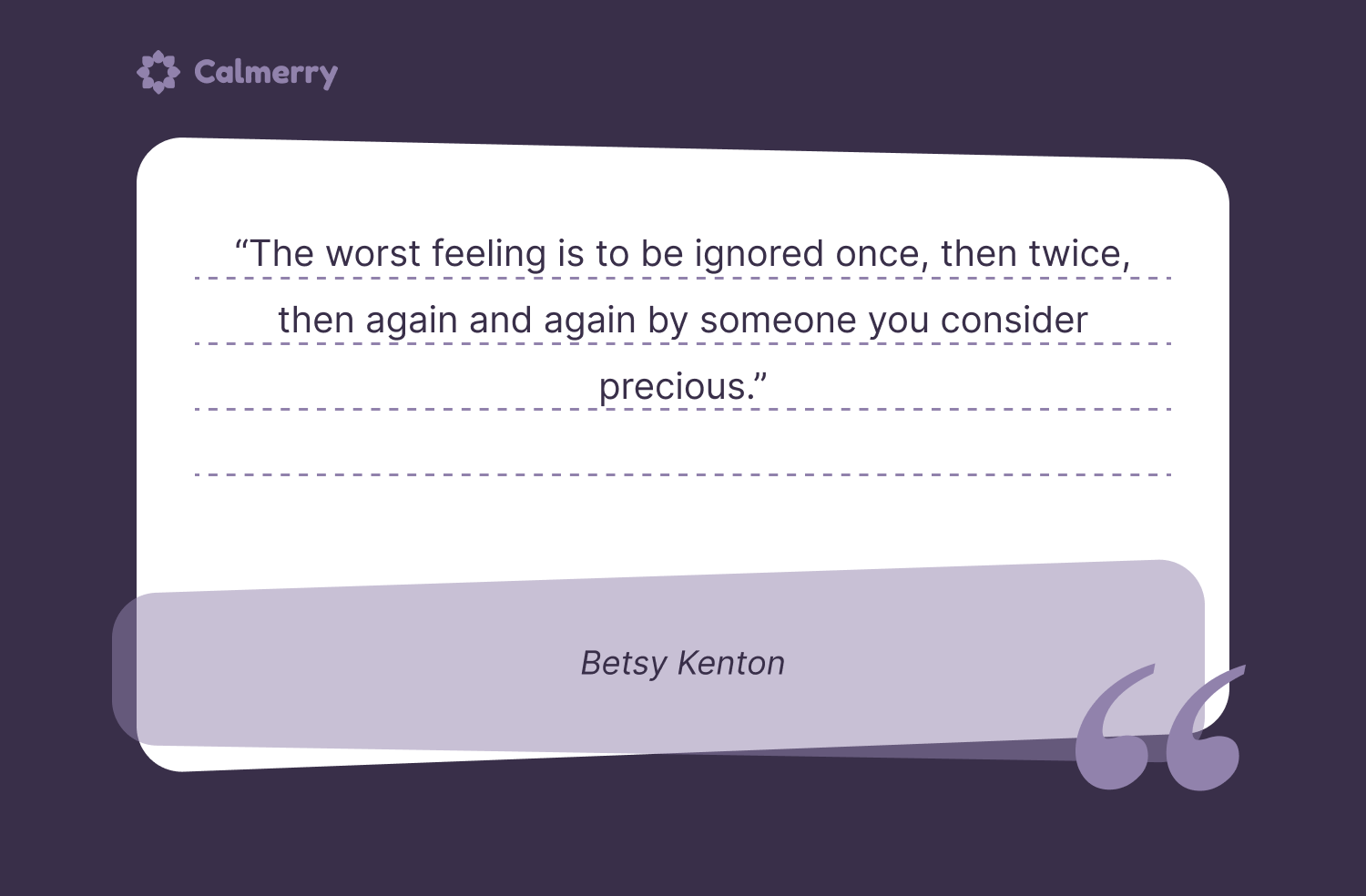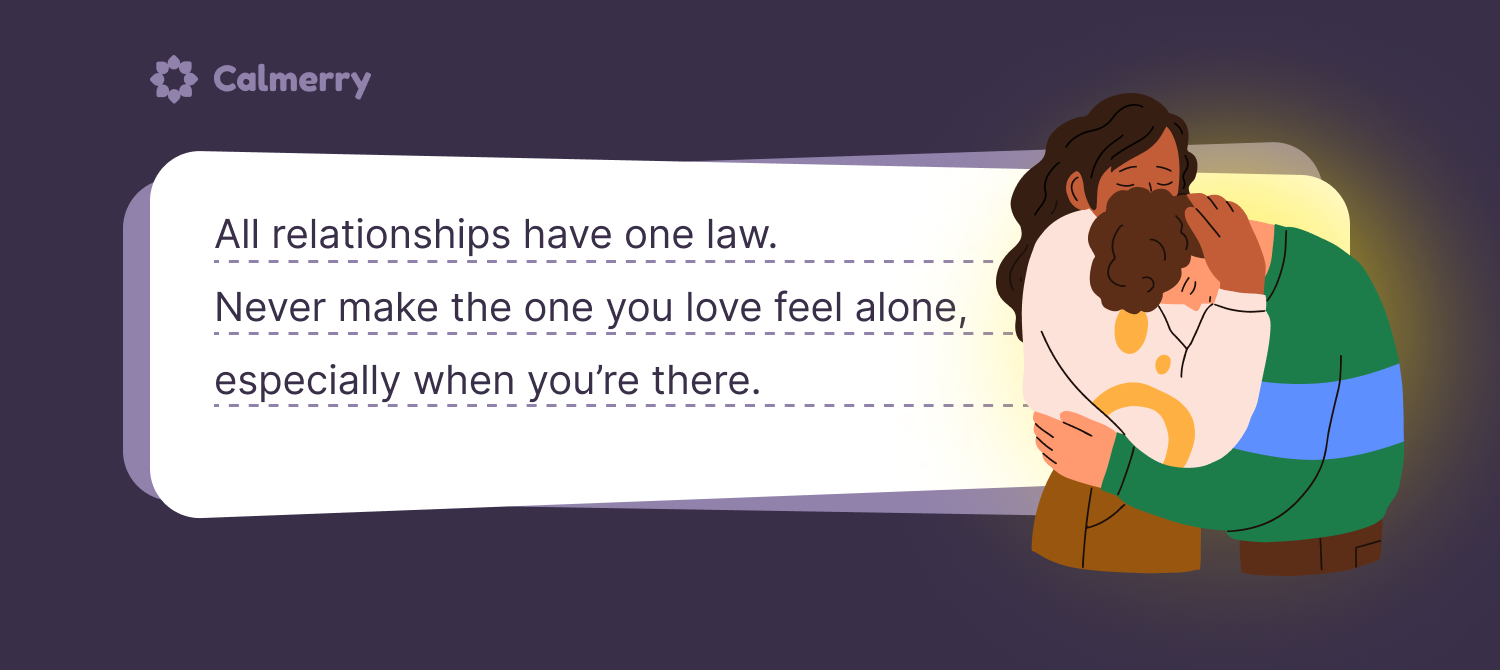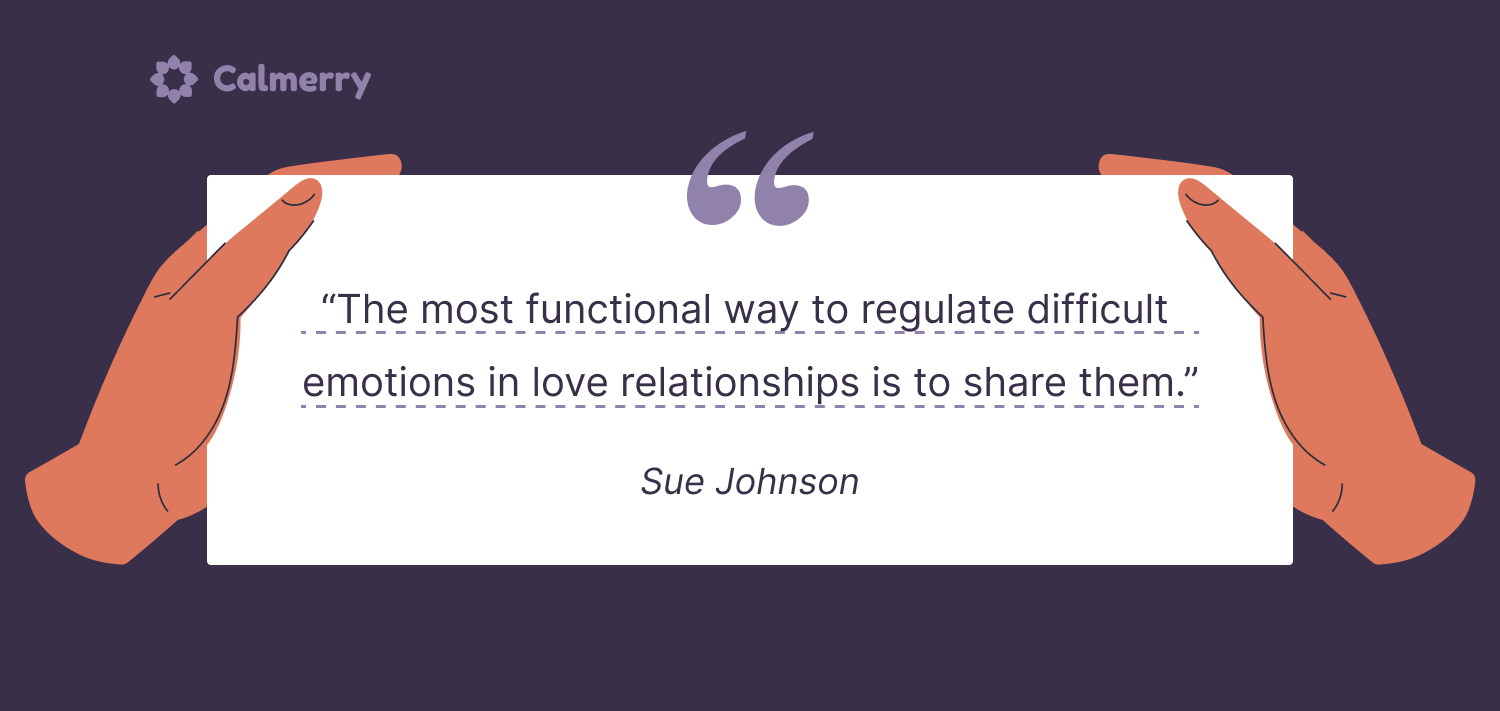Stonewalling in a Relationship: When Your Partner Refuses to Communicate

In this article
We all need to feel heard, especially by those we love. So, when your partner goes quiet and refuses to acknowledge what you say, it hurts. Stonewalling can be intentional or unintentional. Either way, it is hurtful to the recipient and may severely damage a relationship in the long run.
What is stonewalling?
The term “stonewalling” was popularized by John Gottman, a relationship researcher. It refers to when a listener withdraws from an interaction by shutting down or getting quiet, putting up a verbal or emotional wall, and refusing to engage. One absolutely refuses to consider their partner’s perspective. Stonewalling is also known as the silent treatment.
In aggressive stonewalling, the stonewaller knows that silence, a cold shoulder, and emotional isolation hurt their spouse. So, they do it to gain leverage of power. It is a common tactic in abusive relationships where the more powerful partner controls or dominates a less powerful one.
In defensive stonewalling, conflict is overwhelming to the stonewaller. Their only choice is to shut it out. They are not aggressive, rather, they escape conflict to protect themselves from getting hurt by their partner.
Stonewalling is a complex issue because it has its roots in childhood trauma. One may not realize the extent to which their behavior affects their partner. However, knowing how to respond to stonewalling or what to do if you behave that way can save the relationship.
What are the signs of stonewalling?
Often, it is easy to identify this behavior in a relationship. However, it can be subtle and hard to pinpoint.
Below are some stonewalling examples:
- Ignoring what someone is saying
- Minimizing other person’s concerns
- Changing the subject to avoid a sensitive topic
- Storming off while someone is talking
- Giving excuses not to have a conversation
- Avoiding a subject by making accusations
- Using dismissive body language such as looking away or rolling their eyes
- Refusing to answer questions
- Refusing to acknowledge stonewalling behavior
- Avoiding eye contact

Why do people stonewall in relationships?
While stonewalling can look aggressive, mean, or childish from the outside, it feels different from the inside.
The stonewaller behaves this way for one of many reasons, including:
- Avoidance of conflict
- Attempt to reduce tension during an emotionally charged conversation
- Belief that they cannot handle a certain topic
- Fear of the partner’s reaction
- Fear of vulnerability
- Hopelessness that a resolution cannot be found
- Belief that their partner doesn’t want to resolve the conflict
- Attempt to establish themselves as neutral on the subject
- Attempt to establish their partner as “emotional” or “unreasonable”
- To manipulate the situation
- To end the relationship
Is stonewalling a form of abuse?
Yes, stonewalling could be a form of abuse. It belittles, demeans, disrespects, and devalues the person who’s being stonewalled. Using manipulation to gain control of the relationship and making them feel powerless in the process is one of the worst forms of emotional abuse.
Is stonewalling a form of gaslighting?
Yes, stonewalling and gaslighting are closely related. A stonewaller may attempt to make you seem “emotional” or “unreasonable.” This is typical gaslighting behavior – they attempt to make you think you don’t have a good grasp on reality, or that you’re not emotionally intelligent.
How does stonewalling affect a relationship?
Stonewalling is emotionally painful and frustrating, and it can have a very destructive effect on a relationship. It makes any sort of dialogue impossible and prevents couples from having any ability to discuss their problems and work through them. That’s why it can be an indicator that the relationship is likely to end.

More common effects include:
- Escalating arguments – stonewalling forces a confrontation or causes frustration to build to the point where regrettable things are said.
- Emotional disconnection – ignoring each other’s feelings makes it harder to be emotionally intimate.
- Triggers a sense of hopelessness – solving issues becomes impossible, and one may feel like giving up on the relationship.
- Emotional abuse – partners who are stonewalled feel demeaned and abused.
- Increased likelihood of illness – studies show that stonewallers experience backaches, neck stiffness, and muscle aches. Stonewalled partners are at high risk of increased blood pressure and rapid heart rate.
How do you deal with a stonewalling partner?
Stonewalling doesn’t necessarily mean the end of a relationship. Here’s what you can do if you recognize this behavior in your partner.
Don’t play the “fixer”
You’re not the problem. If stonewalling is chronic, you must avoid blaming yourself and walking on eggshells to please your partner. Acknowledge that the only way a stonewaller’s patterns will change is if they are willing to change them.
If you’re the only one willing to work on the relationship, reconsider it. Aggressive stonewallers sometimes act like victims to protect themselves. They might refuse to acknowledge their problems, so think deeply about whether you want to continue a potentially toxic relationship.
Communicate
Talk to your partner to establish the best way to communicate with them when they’re shutting down. Ask them how you can help the next time they’re withdrawing from a conversation, and consider seeking support through online therapy if you both find it challenging to break through these communication barriers.
This tactic works for defensive stonewalling, as your partner may not be doing it out of malice.
Empathize
Put yourself in your partner’s situation, especially when they start stonewalling. Empathy can counter disengagement and lessen your partner’s negative feelings during tense moments. It can lower their defenses and prevent them from shutting down completely.
Try to recognize how your actions can cause your partner to stonewall and make an effort to understand how you can change your actions and attitudes to prevent this.
Depersonalize
When you realize that your partner is stonewalling, detach so that you do not enable their unhealthy behavior. This tactic works when there’s no motivation on their part to change, and all your efforts to understand them beforehand have failed.
Detaching sets a clear boundary and sends the message that although they are allowed to behave as they please, you refuse to be part of it. It communicates that you won’t tolerate such behavior.
Once they calm down, talk about it and establish that it’s not healthy for you to be subjected to their unhealthy behavior.
What to do if you realize you are stonewalling someone
Even if stonewalling appears intentional and aggressive, remember that it’s used by people who feel powerless or have low self-esteem. Stonewalling can also be a sign that you’re uncomfortable with the situation.
If you realize that you resort to stonewalling when you’re frustrated, here’s what you can do.

Recognize when you’re about to stonewall
Stay in touch with your emotions so that you can tell when you’re shutting down. You might pay attention to physical changes connected to negative emotions. A lump in your throat, burning in your chest, or fluttering in your stomach might hint that you’re about to shut down.
Knowing when you’re overwhelmed can help you figure out how to cope.
Communicate
Talk to your partner about what makes you shut down. Tell them how they can be of help when you’re feeling overwhelmed.
When you feel extremely sad, angry, or anxious, take several deep breaths and try to communicate. You can say, “This is getting overwhelming, let’s take a break for now and deal with it later.” Always follow through on your promise to discuss the issue later. Choose a moment when you’re calm and able to discuss sensitive matters.

Learn to self-soothe
You are the only one who can control your emotional state and behaviors. When you’re worked up, it is your responsibility to calm yourself, so you’re able to respond without reacting aggressively. Learning self-soothing techniques can help.
Self-soothing involves identifying activities that are calming. Some activities to choose from include:
- Place a cool washcloth over your head
- Clench and release your fists
- Focus on five things you can feel in contact with your body, e.g., your feet on the floor
- Listen for five things you can hear, e.g., the clock ticking
- Count to 10
How can relationship therapy help with emotional abuse?
When stonewalling occurs in a relationship, couples therapy can help. Dealing with the problem together is best because there are behaviors both of you need to learn and unlearn. You need to find the right tools to improve your communication, and this is where a professional counselor comes in.
A professional counselor can help both of you understand why stonewalling is taking place. They can teach a more structured approach to communication. Having a neutral third party might increase the chances of a fruitful resolution to the issues both of you are dealing with.
Some techniques taught in couples therapy include:
- Accepting feedback
- Acknowledging wrong perceptions
- Active listening
- Being aware of body language
- Decompressing before approaching a sensitive topic
- Finding a safe space for conversation
- Agreeing to postpone the conversation if things get heated
- Setting a time to return to the conversation when you’ve calmed down
- Using neutral words rather than criticizing or accusing
The bottom line
How to deal with stonewalling? By identifying the signs, communicating clearly, and setting boundaries. Stonewalling is not always abusive, but when used to gain control, it can damage a relationship severely. But understanding that this defensive behavior results from childhood trauma can help change it and improve your relationship.
If left unchecked, stonewalling can greatly contribute to the end of a relationship, so it needs to be addressed. Attending couples counseling can help, giving partners an opportunity to work on their marriage in a space that supports both of them. Counseling can be done online for increased privacy and convenience.
If both partners are willing to put in the work, there is hope for the relationship. But if your partner refuses to take part in counseling, you may still find it helpful to talk about your problems with a therapist at Calmerry.
online therapy
live video session



